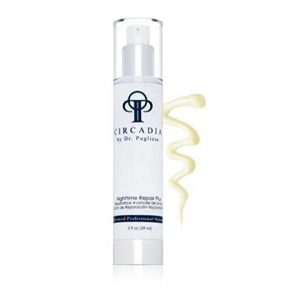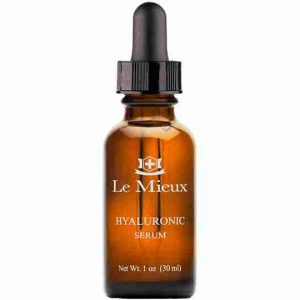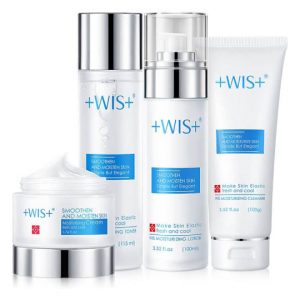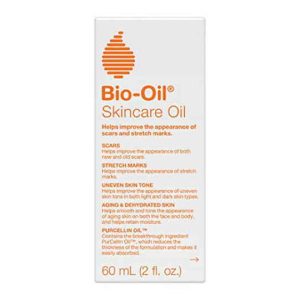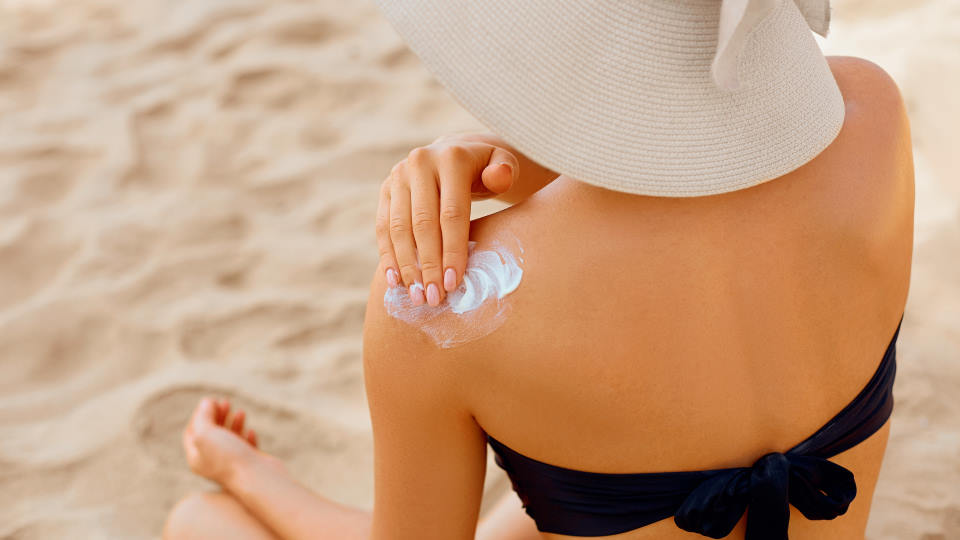
When summer comes knocking, we frantically try to find the perfect sunscreen that is best suited for our skin. We’ve all been on the internet looking for advice on sunscreens. Which label is better? What is the difference between them? Which ingredients should it have?
After some research, you will see that there are two types of sunscreens: Mineral and chemical sunscreen. However, you may wonder what the difference between mineral sunscreen and chemical one is. In this article, we hope to answer this very question.
Before we move forward, we want to mention the importance of sunscreens. Sunscreens not only protect us from getting sunburns but also prevent the harmful effects of the sun. Prolonged exposure to the sun results in irrevocable repercussions such as skin cancer. Developing skin cancer is the gravest consequence of not using sunscreens.
Not protecting your skin from the sun also has other hazardous consequences. For example, prolonged exposure to the sun accelerates the skin’s aging process giving you early wrinkles. It exhausts your skin barrier and causes fine lines, hyperpigmentation, age spots, loose skin, and damaged blood vessels – also known as spider veins.
With this being the case, we should gravitate towards using sunscreens. To have healthy skin, the experts advise us to use sunscreen regardless of the weather conditions. Whether it is sunny or not. Experts recommend using sunscreen for every body part that comes in contact with sunlight.
Continuous usage will soften the blow of the sun’s UV rays providing you with healthy skin. To return to our previous questions, we compiled a small guideline for those who want to know the difference between mineral sunscreen and chemical sunscreen and its properties. So what is the difference between them? Before that, let us break down the properties of these sunscreens.
How Do They Work?
Mineral Sunscreen
The way that mineral sunscreens work is that they practically enclose your skin with protection from UV rays. Mineral sunscreen’s ingredients stick to your skin’s outermost layer, forming a physical barrier that reflects UV rays, preventing it from penetrating your skin cells.
Since it sits on your skin and does not get absorbed by it, it is a good choice for people who are hesitant due to chemical exposure concerns. It is also a favorite choice for people with sensitive skin and children.
Mineral sunscreens don’t require a waiting period after being applied. Instead, you cover your skin with the product, and it offers a quick shelter from the sun. In addition, they can be layered over makeup and skin care products with no issue.
Cons of Using Mineral Sunscreen
As mentioned above, this type of sunscreen sits on top of your skin as a physical barrier between you and the sun’s harmful rays. However, this characteristic might be partially responsible for breakouts in people with acne-prone skin and combination skin. It also has another downside arising from its specialty.
Since it needs to stay on your skin, it must be applied frequently. It leaves a white cast on the skin. However, they are lighter in contrast to their predecessors. Even with evolving formulas, mineral sunscreens still might feel heavy on the skin for some people. It also might be a little challenging to apply depending on the quality of the product.
Chemical Sunscreen
The way that chemical sunscreens work, however, is entirely different. Unlike mineral ones, chemical sunscreens are absorbed by the skin, and they allow UV rays to be absorbed into their formula. In return, it absorbs UV rays creating a chemical reaction.
The end product of this chemical reaction is heat that later dissipates from the skin. With this method, chemical sunscreen gathers all of the harmful UV rays before they can do any damage to your skin.
It is simple to apply, and since the skin absorbs it, it doesn’t leave a white cast behind. Over the years, it has become favored by consumers. You need to apply it for at least 15 minutes before going out in the sun and reapply it every two hours. If you participate in any activity that will wipe most of the sunscreen off your skin, it, again, needs to be reapplied.
Cons of Chemical Sunscreen
Some people may get skin reactions from chemical sunscreens. It may result in allergic reactions in people with sensitive skin and has adverse effects on the skin of people with already existing skin conditions, such as melasma and rosacea.
It might cause red patches, small pimples, and dark patches on the skin. In addition, it may irritate your skin. So, it must be carefully chosen according to your skin type and conditions.

What Is the Difference Between Chemical Sunscreen and Mineral Sunscreen?
The critical difference between them in their battle with the sun’s harmful rays is that mineral sunscreen essentially works as a physical barrier to block off the UV rays by staying on the surface of your skin. In contrast, chemical sunscreen absorbs the UV rays and converts them to heat. The chemical sunscreen does not leave a white cast in contrast to a mineral one. It is invisible on your skin.
Mineral sunscreen is better suited for people with sensitive skin, unlike chemical sunscreen, which can cause skin irritations. Chemical sunscreens are favored among consumers due to leaving a lighter feeling on the skin. The consumer also favors chemical sunscreens because they protect for longer during the day.
Moreover, chemical sunscreens are easier to apply since the skin quickly absorbs them. However, mineral sunscreens don’t get absorbed by the skin, making them harder to use.
Regardless, one would need to wait at least 15 minutes before going out in the sun if they have used chemical sunscreen, unlike the mineral one, which doesn’t require a waiting period. As soon as you apply the mineral sunscreen, you are free to go wherever you like. Also, you can put makeup on top of your sunscreen.
What’s more, some chemical sunscreens contain additional beneficial ingredients for battling other skin issues. For example, it can contain particles that can assist your skin in staying hydrated.
However, chemical sunscreens pose a severe concern regarding having a chemical and more complex formula in contrast to mineral ones since they can cause skin irritations and worsen an already existing skin condition. So, it might be better to use mineral sunscreen if you have sensitive skin or if you will apply it to your children.
In addition, The experts have put forward that mineral sunscreen is the more environmentally friendly of the two. So, if you plan to take a trip to the ocean, be careful not to use chemical-based formulas for marine life. In light of this information, we can say that even though consumers enjoy conventional chemical sunscreens, the medical community is inclined to trust mineral sunscreens.
Conclusion
In conclusion, both of these products have some cons and pros. Honestly, it isn’t correct to say one of them is more foolproof than the other. They have their weaknesses and their strengths. The significant part is finding the one most suited for your skin. Mineral sunscreen may work best for you.
On the other hand, it may not be well suited for someone else’s skin type. Are you hesitant when it comes to chemicals? Do you have sensitive skin, and are you afraid of the reactions some products may cause?
You can use mineral one easily without any sweat. Do you want something more aesthetic and has more than one use? You may want to try out chemical sunscreens. It comes down to finding the best one that is suited for you.
Not only do we need protection from the sun to prevent sunburns, but also we need it for much more severe effects. For instance, to stand against various skin cancer types, we need to prevent prolonged exposure to UV rays.
To do that, our best friends, in this case, are sunscreens, no matter which material it is based on. If we do not exercise due care regarding this matter, overexposure to UV may bring serious consequences. Such as; accelerated aging process, hyperpigmentation, loose skin, and spider vessels.
As long as you don’t forgo using sunscreen that’s 35 SPF or higher, whether it is mineral or chemical, it doesn’t create a big difference. The key to protecting yourself from the adverse effects of sun rays is the everyday use of sunscreen with an SPF of 35 or higher. For sunscreens to be effective, it needs regular consumption.
However, due to being more eco-friendly and less complication-causing in nature, we like to advise using mineral sunscreens if you can. Whether in the summer or the winter, don’t forget to apply your sunscreens, people. To your health!
